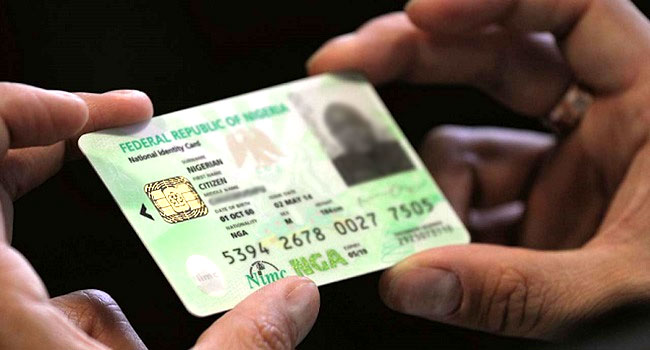This post has already been read 1371 times!
The National Identity Management Commission (NIMC), in collaboration with the Central Bank of Nigeria (CBN) and the Nigeria Inter-bank Settlement System (NIBSS), is set to unveil an advanced version of the national identity card, endowed with payment capabilities to support a wide array of social and financial services. This next-generation card, fueled by the AfriGO national domestic card scheme, represents a significant leap in identification technology.
Kayode Adegoke, NIMC’s Head of Corporate Communications, revealed these details in a recent announcement. The card, designed in accordance with the NIMC Act No. 23 of 2007, will serve multiple purposes for Nigerians and legal residents, encompassing the role of a General Multipurpose card (GMPC).
This card is engineered to meet the increasing need for reliable physical identification, enabling individuals to verify their identity for both governmental and private sector services. It aims to bridge the financial inclusion gap for underserved populations, thereby facilitating citizen empowerment and enhancing engagement in national development activities.
Eligibility for acquiring this card is tied to registration with the National Identification Number (NIN), emphasizing its role as the primary national ID. The card’s specifications align with ICAO standards, extending its use to debit or prepaid card functionalities when linked to the user’s bank account.
The initiative targets enhancing access to a spectrum of social and financial services, including government assistance programs, specifically for individuals previously marginalized from such benefits.
In adherence to data protection norms and the public good, the NIMC assures stringent compliance with global data security standards, safeguarding cardholder information against unauthorized access.
The card is set to incorporate features like a Machine-readable Zone (MRZ) compatible with ICAO standards for e-passport data, issue date, and document number. It will also support various additional services like travel and health insurance, microloans, and subsidies in sectors such as agriculture, food, transport, and energy.
Innovations include the integration of Nigeria’s Quick Response (NQR) code featuring the national identification number and biometric verification methods like fingerprints and photographs to authenticate identity securely. Moreover, its offline transaction capability ensures usability in regions with limited or no internet connectivity.
As a multifunctional tool, the card caters to the needs of both the banked and unbanked populace.
NIMC has announced that requests for the card can be made online, through commercial banks, participating agencies, or directly at NIMC offices nationwide, ensuring broad accessibility for registered citizens and legal residents.
Comments




